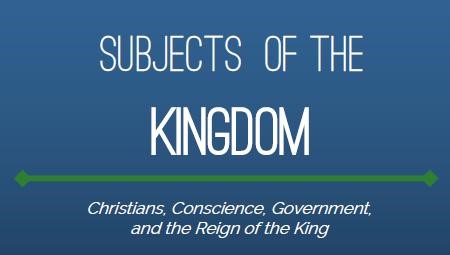John Bright’s book The Kingdom of God (Abingdon Press, 1953) takes a historical approach, walking the reader through centuries of God’s dealings with his people. It seems to me that such an approach will likely result in a more adequate kingdom-ology than any theology or philosophy, especially if the latter is detached from history and the scriptures. Observing historical events in terms of human failures and foibles, and of God’s expectations and responses seems to get at the root of what it means to be sovereign on the one hand, and submissive subjects on the other. Bright treats the actual work of the King among actual people. I am as likely to keep referring to his book as to any other on this subject, including my own.
Toward the end of a section, Bright offered the words below. Many sections are profound, but my eyes stopped and rested on p. 94 today.
Yes, heretofore, we have dealt with Israel as a nation. Israel is the covenant people of God, the chosen people of his election, the heirs of his promises. We have seen how easily this idea could be prostituted until, in popular imagination, the people of God became identified with the Israelite state, and the victory of God’s purpose with the glorification of that state. We have also seen that the prophets were obliged to reject that identification completely. Yet not completely, for they could never agree that Israel’s failure involved the failure of God. In the notion of the Remnant, however, a distinction begins to be drawn between physical Israel and the true Israel, the actual Israel and the ideal Israel. The notion begins to take root in Hebrew theology that actual Israel will not inherit the kingdom of God—that vision will ever be beyond her.
Speaking for myself, I would not assert that “the church” has “replaced” ancient Israel per se. Some might read “the church” as one of today’s institutions, or as the collection of all denominations. Replacement, stated that way, seems anachronistically over-stated and misleading. Neither will I be shy, though, about saying that it is the people of the new covenant to which all of theological history has pointed.
I have rarely if ever found a phrase in Bright’s book to be quibbled with, but I might not have chosen “actual Israel” in the sentence quoted above. It seems to me that, when one looks backward and all around the notion of God’s kingship, the ideal Israel should really be equated to actual Israel. The scenario could not always have been sized up in this way, though. God’s original covenants—e.g., Noahic, Abrahamic, Mosaic, and perhaps others could be added—were as true in their respective eras as the current covenant is in ours. Both Joshua’s Israel and David’s Israel were actual Israels at the time. Yet times change, and people change. God does not himself change, but his responses to people are changing, dynamic—and responsive, as responses are! The coming of the Christ was the ultimate instance of God’s response to humanity’s predicament.¹
I’m gladdened that a scholar such as John Bright has rejected the notion that the Israeli nation-state of 1948 comprised the people of God. Written less than a decade after the end of WWII, and just five years after the modern nation of Israel was born, that statement might have required some courage.
Christians’ place in the cosmos now is not a matter of “replacement,” really; that term casts a negative light on Israel that existed prior to the Incarnation. I don’t claim to understand all the ins and outs of replacement or remnant theology. I do however strongly suspect that the people of the new covenant fully constitute God’s people today.

¹ I would go so far as to say, logically speaking, that there could yet be another covenant put in place at some point in the future. Theologically and scripturally speaking, on the other hand, another covenant is as unimaginable to me as the possibility that Mormon founder Joseph Smith wasn’t delusional. I suppose Moses could not really have conceived of the New Covenant while he lived, either, but it’s impossible for me to conceive of any new covenant apart from Jesus Christ.
